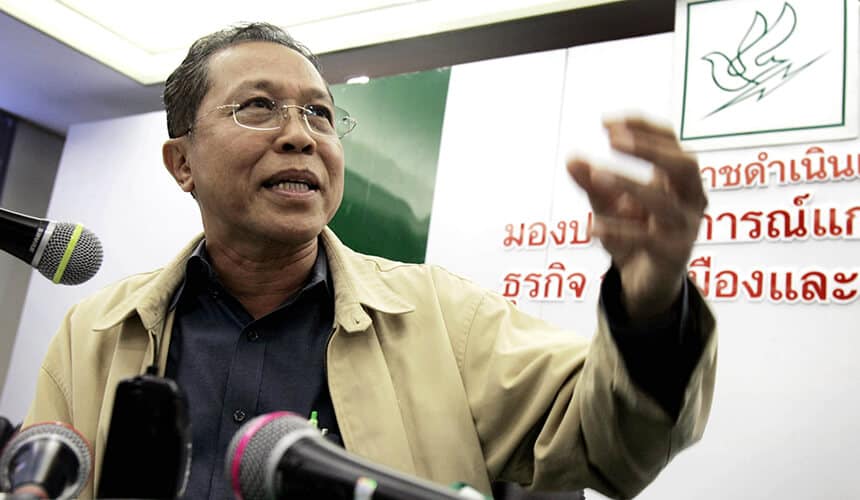Pongsak Payakvichien
Thailand’s Pioneer for the Power of the Press
Newspapers have long been entrusted as watchdogs for society. And in his native Thailand, legendary editor Pongsak Payavichien MA1971 leads the pack.
As an editor and industry executive, Pongsak has consistently elevated the quality of Thai media with his hallmark style of journalism: professional, ethical, and in service to the public interest.
In a nation where politics are sometimes volatile and government has outsize influence over much of the media, Pongsak’s approach to journalism has been an undeniably powerful force.
“Everyone knows that a coin has two sides, but we overlook the edge,” he’s said. “I believe journalists are the edge that separates heads and tails.”
In 1978, Pongsak co-founded the daily newspaper Matichon, inspired by the student movement of the day to provide progressive political coverage. Five decades later, the stalwart flagship daily is part of a powerful media network of print, online, and broadcast outlets, Matichon PLC, where Pongsak is senior executive director.
He’s also foundation secretary for the Thai Tribune, a nonprofit public-news service agency with a mission: to be “free and independent from the influences of politics or money.”
Pongsak has fought for the power of the press in nearly every professional role he’s held. As managing editor of Prachathipatai (Democracy), he transitioned the paper’s sensationalized reporting into what would be Thailand’s first model for quality “hard” news. He was editor and publisher of a radical newspaper forced to shut down after a 1976 military coup.
From The Park
Look at different opinions like gear wheels, as a source of energy.
Source: Used by permission of copyright holder.
He has defended independent media from corporate takeover attempts. And after television played a role in a 2006 coup, Pongsak ensured that the public-broadcasting agency MCOT would serve the public interest despite political turmoil.
Pongsak chose to attend graduate school at Wisconsin following the advice of a journalism professor in Thailand — a fellow UW grad. In Madison, Pongsak worked through language barriers, developed an appreciation for large American cars, and was deeply inspired by his adviser, Professor Wilmott Ragsdale, who told his students: “Be bold. Take a chance.”
Pongsak says that’s been his philosophy since he was five years old, when he read a quote in his grandfather’s obituary book: “‘We’re born and then we die. When we die, we can’t take anything with us.’ That made me this way. It seeped into my DNA, and I resisted the rules imposed by society.”
 48° F
48° F
